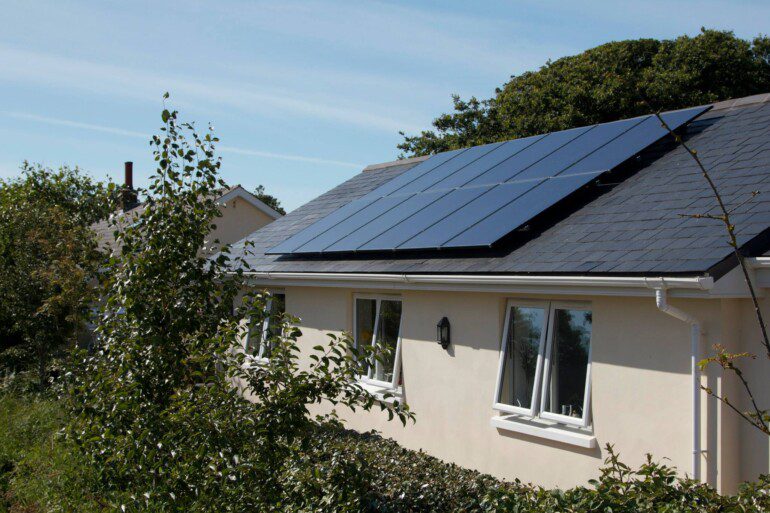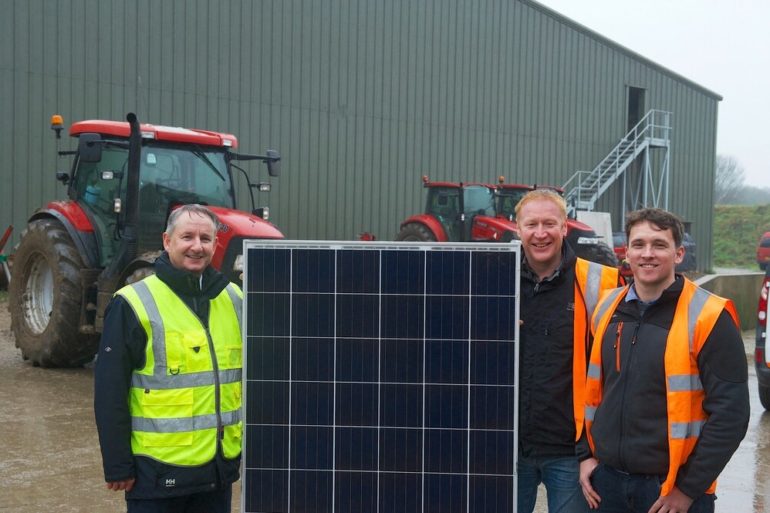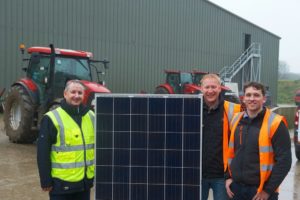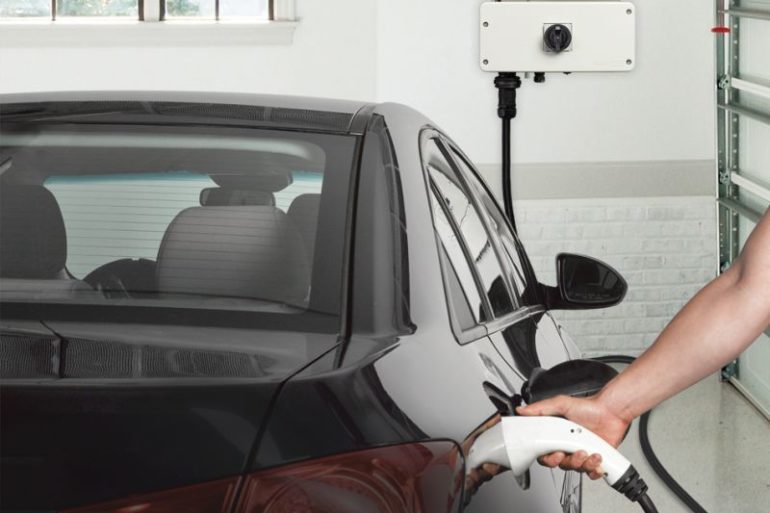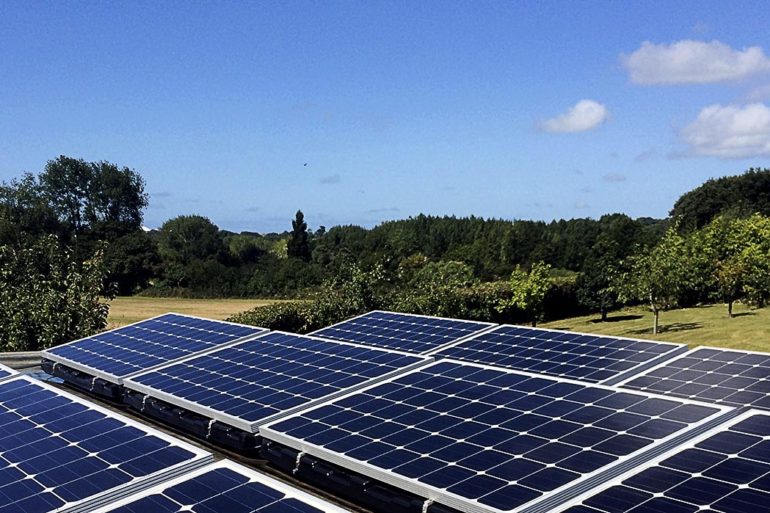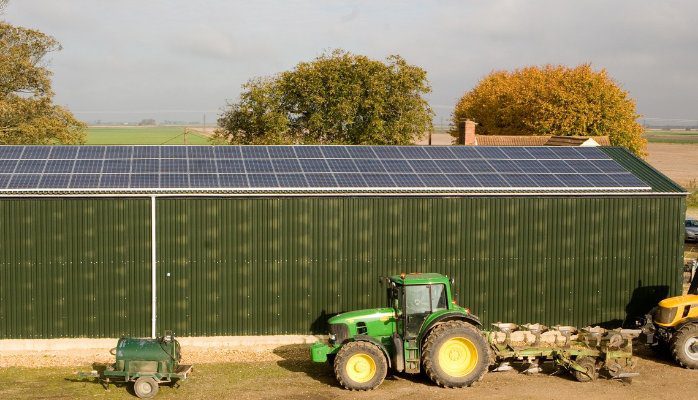Mark Brandon of Chamber members, SunWorks (CI) Limited, sets out his thoughts on the Island’s renewable energy policy and the options available.
Sustainable business, or green business, is an enterprise that has minimal negative impact on the global or local environment, community, society, or economy – a business that strives to meet the triple bottom line.
I like this Wikipedia contributor’s interpretation, which aligns with my personal view. ‘Sustainable’ is a word which has different depths of meaning depending on your stance and is not always strictly defined. It might be argued that locally owned businesses are going to better understand the impact of their activities and this was very much at the heart of the recent Chamber event presented by Economist, lawyer and author, Michael Shuman, who addressed ideas from his new book “The Local Economy Solution”. Although his presentation represented a somewhat typically American model, it has much relevance to Jersey and for me the “Three Alternative Rules for Local Prosperity” are key points:
- Maximise local ownership
- Maximise self-reliance
- Spread the model of triple bottom line success (not just Economic, but also considering Social and Environmental factors)
Although a number of UK headquartered businesses operate in Jersey, in general the Island would score well in any assessment of the proportion of businesses owned locally, so a small tick in that box. When it comes to self-reliance we do well in most areas, but we could do more. My area of knowledge is the growing world market for renewable energy and specifically Solar Photovoltaics (electricity from solar panels), which is now a proven technology worldwide already contributing 1% of the world’s total electricity and set to grow exponentially in coming years.
Despite there being no regulation of our electricity market it should be said that the JEC offer good value from a predominantly low carbon source of electricity although they offer little in the way of diversity or long term self-reliance. In past years Jersey-produced electricity came from diesel oil and this expense along with Kyoto carbon reduction targets has resulted in a drive to maximise low carbon imported power. Historically we have not always seen eye to eye with our French neighbours and it wasn’t so long ago that our financial services industry was going to suffer being put on one of their blacklists, so is this lack of self-reliance a positive step, or indeed a ‘sustainable’ one? Aside from the debatable environmental impacts of nuclear facilities, if the cheapest power is the criteria, the Island has to put up with the political risks. Yet given the natural resources available to us, having a bigger on-Island element in the mix ought to be a government priority. We are not talking about the removal of French sourced energy, just the belief that a combination of the Energy from Waste Plant, solar PV, wind, biomass and in time, tidal power, can contribute a worthwhile proportion of the growing total requirement. Encouragement for such a shift shouldn’t wait for just the economics to come into line with imported energy. But the government needs to want that to happen much more than it does at present. A look to recent Island Games participants Gotland would reveal some forward thinking plans to be an exporter of renewable power while currently building big data on consumer habits for major updates to its ‘smart’ grid. (See: Smart Grid Gotland.)
Locally generated renewable electricity transmitted over short localised distances is a way of contributing to our growing demand. A ‘step back’ from the JEC on total control of the grid (as JT have been obliged to do in their market) would be a noble, albeit riskier move for those with current vested interests. How this is done needs careful discussion but should allow true local commercial activity to begin. Islanders could earn income and be using the world’s latest technologies in small wind, solar and biomass to generate electricity, to meet a portion of their needs and to supply those around them whilst paying for the service of the grid network and its maintenance. The JEC would of course continue to set standards and assure quality of power and ‘smart’ futureproofing to meet modern society needs.
Opportunities for local investment funds emerge in launching projects and a building’s consumption could be offset with a renewable energy plant in another place on the Island. Parish based co-operatives and social housing projects could begin to make financial sense. All this would in turn give more transparency to our consumption habits, drive our education of modern electrical infrastructure and encourage use of electric transport and efficient heating solutions.
While currently all this is technically possible, the issue is that the electrical grid should be seen as a vehicle which should be available for use and those looking to contribute should not be held to the avoidable costs of the JEC simply purchasing from EDF in France. On-Island generation should be valued more highly and naturally present lower overhead costs in its transmission and distribution. There is an argument that if the JEC pay more than they currently pay for electricity exports sold into the Grid by owners of renewable generation this will cause prices to rise for everyone. If this is believed to be the case then there are no doubt customers who would want to pay for exclusively ‘green’ electricity at a perhaps fixed rate for a number of years.
A recent study sponsored by Commerce and Employment Department in Guernsey concluded that 89% of people said the Island should make use of its natural resources. The majority of people were also happy to pay more for their electricity if it was being sourced locally from a renewable source. (See: Guernsey Renewable Energy Commission.) Professor Patrick Devine-Wright from the University of Exeter who supervised the study concluded: “Local ownership and use of energy stems from shared concerns about self-sufficiency. In summary, policies on future energy sources that go with the grain of these wider concerns are more likely to secure social acceptability.”
There is currently a positive trend in Jersey towards moving away from fossil fuels to energy efficient technologies with the energy source of the future being electricity. Aligning policy, values and technology with the environment is of paramount importance to current and future generations and expenditure in its favour should be seen as a part of the ‘triple bottom line’, not a short term hindrance to the balance sheet. Jersey is said to be keen to encourage a new generation of ‘Cleantech’ Funds to be administered here, but are we missing an opportunity to foster such business opportunities when we don’t ‘walk the talk’?
In summary, putting appropriately placed renewable power plants on buildings and land owned by Islanders while investing in the local grid puts much more weight on the ‘local self-reliance’ of our energy supply. It gives people the chance to become their own small energy provider and has, to come back to my previous quotation, “minimal negative impact on the global or local environment, community, society, or economy…” In fact it is very positive for all these.


